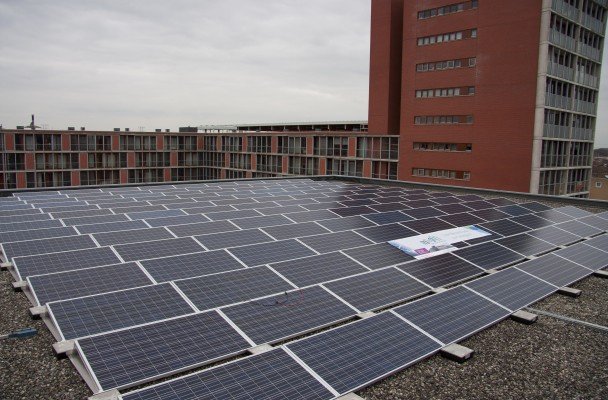
Thanks to an emergency European regulation that is set to take effect this month, it will be easier to install more renewable power plants more quickly. Renewable energy projects will be given the status of “overriding public interest.” As a result, granting permits will be easier and environmental rules will be loosened.
The emergency regulation issued by the European Commission will be valid for one year. Only European member states have to agree to it. Citing the pressing need to bring down the demand for natural gas as soon as possible, it skips the time-consuming approval process that takes place in the European Parliament.
Fear of cold winters
Underlying the proposal put forward by European politicians is the fear that gas reserves will not manage to be filled over the coming year. Plenty of gas has been stockpiled for the upcoming winter, but filling these reserves did require imports of Russian gas.
Practically no gas is expected to be supplied from Russia to Europe next year. Since it is uncertain whether enough LNG will be available to make up the shortfall, the European Commission is seeking to drastically reduce demand for natural gas. This requires that solar and wind power become far more abundantly available very soon.
The emergency regulation to speed up the issuing of permits primarily applies to the installation of new solar panels. Apart from that, upgrading existing solar fields and wind farms falls within the regulation for simplified permitting procedures. The same applies to the requisite connection to the electricity grid.
In a clarification of the regulation, the European Commission estimates that about a quarter of Europe’s onshore wind turbines will need to be replaced over the next few years. The emergency regulation makes it easier to replace obsolete turbines with larger and more efficient ones.

Environmental rules less important
Project developers are required to make every effort not to unduly burden the natural environment when developing new projects. But by giving renewable energy the status of “overriding public interest,” projects will now take precedence when environmental laws would normally get in the way of a project.
This means, for example, that if a developer makes every effort to avoid negative impacts on plants or animals and environmental damage does ensue, it will be accepted as an unfortunate side effect.
Another easing of environmental rules is that a comprehensive environmental impact assessment need not be made for solar parks constructed in the built environment (for example, on top of buildings, above parking lots or alongside roads). The same applies to smaller solar energy projects (up to 50 kW) in other locations.
Speedy permit issuance
The proposal from the European Commission stems from a request by EU member states to facilitate faster and more flexible licensing. Shorter deadlines will now apply for authorities to grant approval for the installation of new renewable energy projects.
For example, a plan to install solar panels in the built environment must be given the green light within one month. Proposals for upgrading existing installations must be reviewed within six months. If the installation of new heat pumps is subject to a permit requirement, then such an application must be assessed within a maximum of three months.








